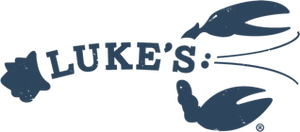
A Few of Our Favorite Things: Empowering Youth through STEM
Today’s youth and our future generations play a huge role in the viability and sustainability of our communities—both here on the coast of Maine and beyond. In our next installment of “A Few of Our Favorite Things” with the Island Institute, we’re highlighting three amazing organizations that are using science, technology, engineering, and math—or STEM—to help us better understand our marine environment, empower this next generation of leaders, and build a more resilient coast through hands-on education, research, leadership, and workforce development.
Hurricane Island Center for Science & Leadership
 PC: Hurricane Island Center for Science & Leadership
PC: Hurricane Island Center for Science & Leadership
Established in 2009, the Hurricane Island Center for Science & Leadership offers STEM (science, technology, engineering, mathematics) experiential education programs for ages 11-18. Its mission is to integrate science education, applied research, and leadership development through year-round educational programs and a seasonal, environmentally sustainable island community.
Through its hands-on science curriculum, Hurricane Island offers unique opportunities for students of all ages to explore and connect with the natural world. Its programs help to educate and empower young leaders from around the world through community-driven science, research, and sustainable practices to help unite our global community and create a more resilient future.
The Hurricane Island research team works with surrounding communities to develop questions and connections in aquaculture and marine biological pursuits. This specialized team manages a three-acre farm to the north of the island where they grow scallops and kelp for research purposes, working with local fisherman and organizations to help advance the aquaculture industry by using science to help understand the questions we face as a society.
With a community-driven focus, Hurricane Island inspires individuals to become impassioned change leaders and informed citizens in confronting current and future environmental challenges. Their research focuses on answering local high-priority questions and increasing scientific capacity on a regional level. By pursuing initiatives that increase knowledge through the scientific process, their work informs communities and empowers people to take action.
Learn more about the Hurricane Island experience in this video, or explore their website here.
Downeast Institute

PC: Downeast Institute
Located in Beals, on Maine’s easternmost coast, Downeast Institute (DEI) is a marine research laboratory and education center featuring a large shellfish research and production hatchery. DEI’s mission is to improve the quality of life for the people of Downeast and coastal Maine through marine research, marine science education, and innovations in wild and cultured fisheries.
Collaborative from the start, Downeast Institute began as an effort by fishermen and community members in the mid-1980s to address concerns about a decrease in soft-shell clam harvests. For over 30 years, DEI has conducted applied research on commercially important shellfish species along the coast of Maine and it continues to work directly with community and industry partners to discover and develop methods and techniques to adapt fisheries to the changing marine environment. The organization exists to support fishermen and the health and resilience of the Maine coast by working to generate new knowledge of the marine ecosystem for all who depend on it.
Since 2011, DEI’s Education Program has been providing experiential marine science and applied math education to pre-K through 12th grade students. By assisting students and teachers in understanding the scientific process through project-based experiences in intertidal and rocky shoreline ecology, the program has led to increased science in the classroom as well as workforce development for future marine science professionals.
For a peek into some of the work Downeast Institute is doing, check out their video on the Gouldsboro Shellfish Resilience project, hear from our Beals Island Fellow Hannah Greene, and learn more about the organization on their website.
Herring Gut Learning Center

PC: Herring Gut Learning Center
Herring Gut Learning Center was founded based on the belief that all students can learn, that students learn best by doing, and that place and community should ground, shape, and inspire curriculum. For 22 years, the Center has been bringing marine science and aquaculture to midcoast Maine. Through hands-on study and experience in aquaculture and marine science, they teach students to embrace learning, appreciate science and the environment, and help them grow as individuals.
Herring Gut Learning Center’s campus—including classrooms, housing, labs, and gardens—sprawls across the southern tip of Port Clyde and the St. George Peninsula. The main building houses modern classrooms, administrative offices, a fish hatchery, and an aquaculture and water quality lab. In addition, an attached greenhouse allows the year-round production for the center's community focused aquaponics enterprise, and a fully equipped water quality laboratory offers students and visiting teachers access to a broad range of technologies.
In 2010, Marshall Point Sea Farm, a former commercial-scale shellfish production hatchery, became part of the Herring Gut campus. Currently, Port Clyde Fresh Catch, a seafood processing facility, distribution, and retail sales center, leases retail space in the facility. This business offers Herring Gut students and visiting teachers an important demonstration of a 21st century working waterfront as well as access to some amazing coastal vistas. .
Whether it’s through educational programs and services offered at the Port Clyde campus, in area schools, or in the field, Herring Gut’s work with students and the local community provides participants with a unique education that encourages the preservation and economic development of coastal communities for present and future generations.
Learn more about Herring Gut Learning Center here.





